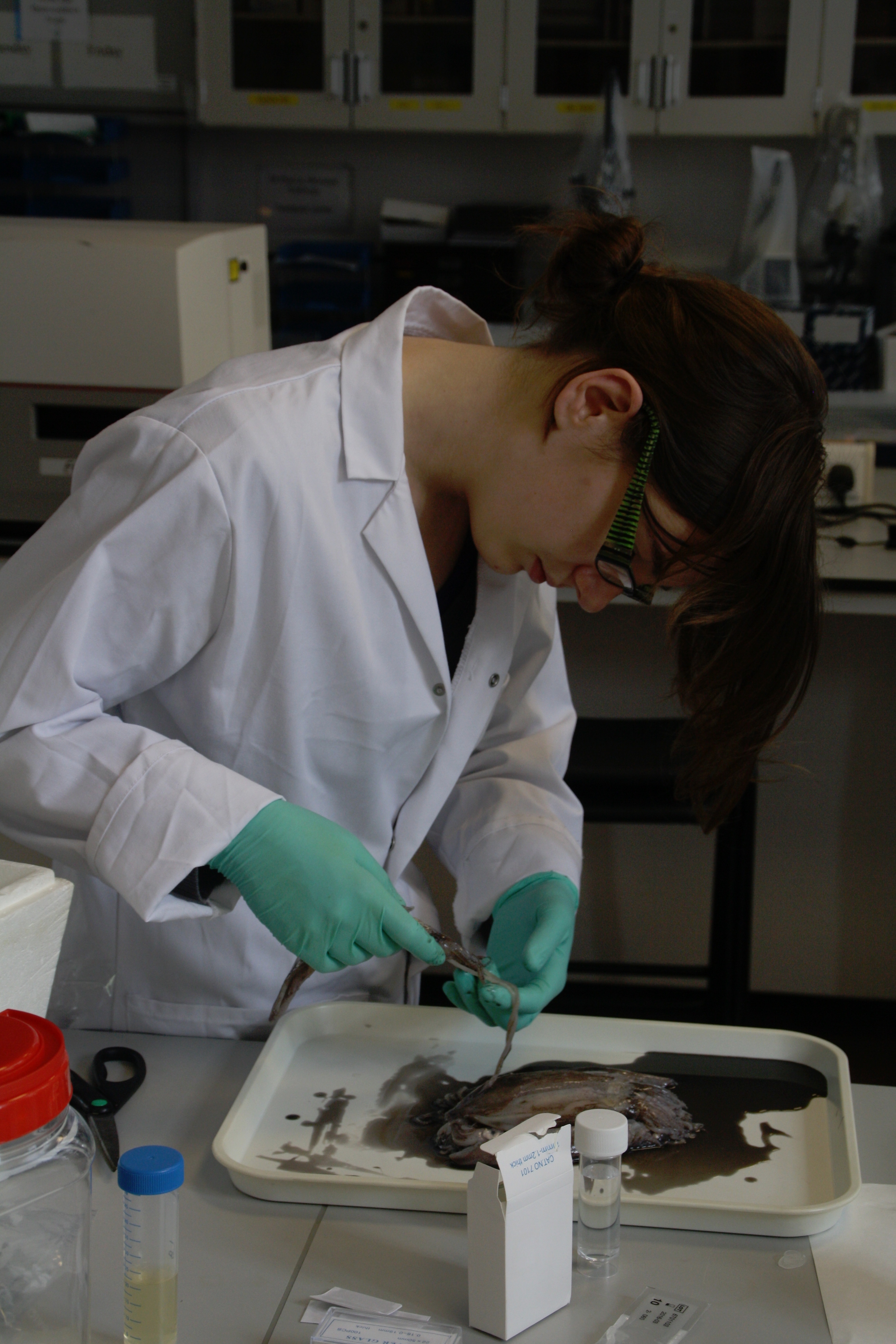Team:Cambridge/Experiments/Squid Dissection and Tissue Sample
From 2011.igem.org
(Difference between revisions)
(Created page with "{{Template:Team:Cambridge/CAM_2011_TEMPLATE_HEAD}} Obtaining DNA coding for reflectin proteins was the vital first step in our project. [http://en.wikipedia.org/wiki/Loligo Loli...") |
(→Squid Dissection and Tissue Samples) |
||
| Line 7: | Line 7: | ||
Specimens of what we identified as [http://www.marlin.ac.uk/speciesinformation.php?speciesID=3718 ''Loligo vulgaris''] and [http://en.wikipedia.org/wiki/Opalescent_Inshore_Squid ''Loligo opalescens''] were dissected for examination. | Specimens of what we identified as [http://www.marlin.ac.uk/speciesinformation.php?speciesID=3718 ''Loligo vulgaris''] and [http://en.wikipedia.org/wiki/Opalescent_Inshore_Squid ''Loligo opalescens''] were dissected for examination. | ||
| + | [[File:CAM_Cat_Squid.jpg | thumb | 200px | Preparing squid samples]] | ||
{{Template:Team:Cambridge/CAM_2011_TEMPLATE_FOOT}} | {{Template:Team:Cambridge/CAM_2011_TEMPLATE_FOOT}} | ||
Revision as of 14:26, 20 July 2011
Loading...
Obtaining DNA coding for reflectin proteins was the vital first step in our project. Loligo tissue was sourced from fishing bait suppliers and culinary wholesalers in order to attempt genomic DNA extraction. From our literature search we discovered that the reflectin gene from E. scolopes contains no introns, so genomic DNA should be suitable for expression in E. coli.
Squid Dissection and Tissue Samples
Specimens of what we identified as Loligo vulgaris and Loligo opalescens were dissected for examination.
 "
"

